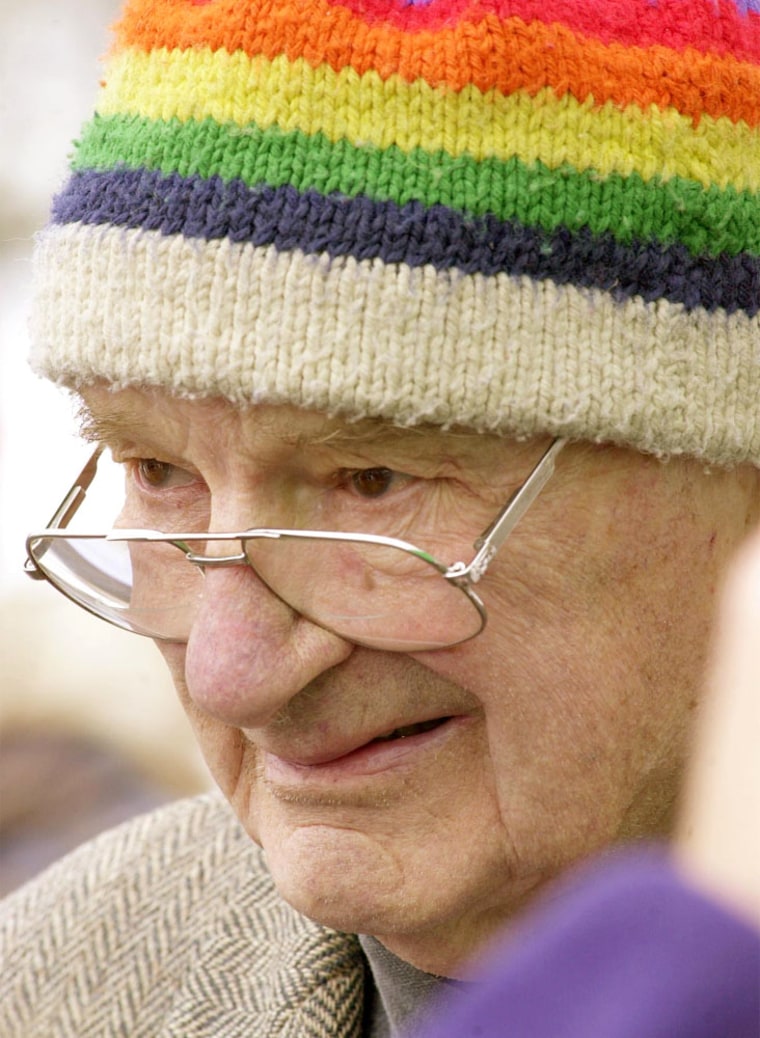David Dellinger, one of the Chicago Seven arrested and tried for their part in the violent antiwar protests that broke out during the 1968 Democratic National Convention, has died at 88.
Dellinger died Tuesday, said Peggy Rocque, administrator of Heaton Woods, the Montpelier retirement home where the activist had been living.
Dellinger was a pacifist who devoted much of his life to protesting. A member of the Old Left whose first arrest came in the 1930s during a union-organizing protest at Yale, he was a generation older than his Yippie co-defendants in the Chicago Seven case.
“The evils in the society today are greater than they were in 1968,” he said in a 1996 interview with The Associated Press. “I enjoy life this way, I enjoy life being in solidarity with the people who are fighting for a better world.”
At the Chicago Seven trial in 1969 and 1970, he and four co-defendants — Jerry Rubin, Abbie Hoffman, Rennie Davis and Tom Hayden — were convicted of conspiracy to incite a riot at the 1968 convention. Those convictions were overturned by a federal appeals court, which cited errors by U.S. District Judge Julius Hoffman.
Worked for unions, civil rights
He fought for unions in the 1930s despite being called a communist, and walked with civil rights leaders in the South in the 1950s and ’60s, despite the risk of violence.
As a soldier in World War II he spoke out against the practice of putting black American soldiers in the back of the train ahead of defeated Germans. During a three-year prison term — one of several stints behind bars — Dellinger refused to sit in the all-white dining area.
Just three years ago, at age 85, Dellinger got up at 2:45 a.m. at his home in Montpelier and hitched a ride in a van headed to demonstrations in Quebec City protesting talks aimed at establishing the Free Trade Area of the Americas.
“Three percent of the richest people in the world control more wealth than 49 undeveloped countries,” he said. “I think the FTAA is going to extend that kind of system.”
